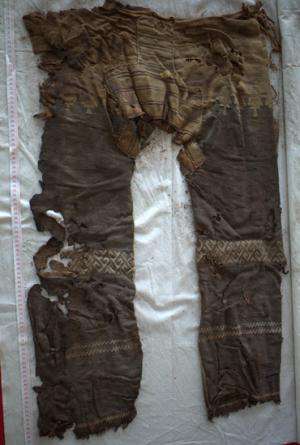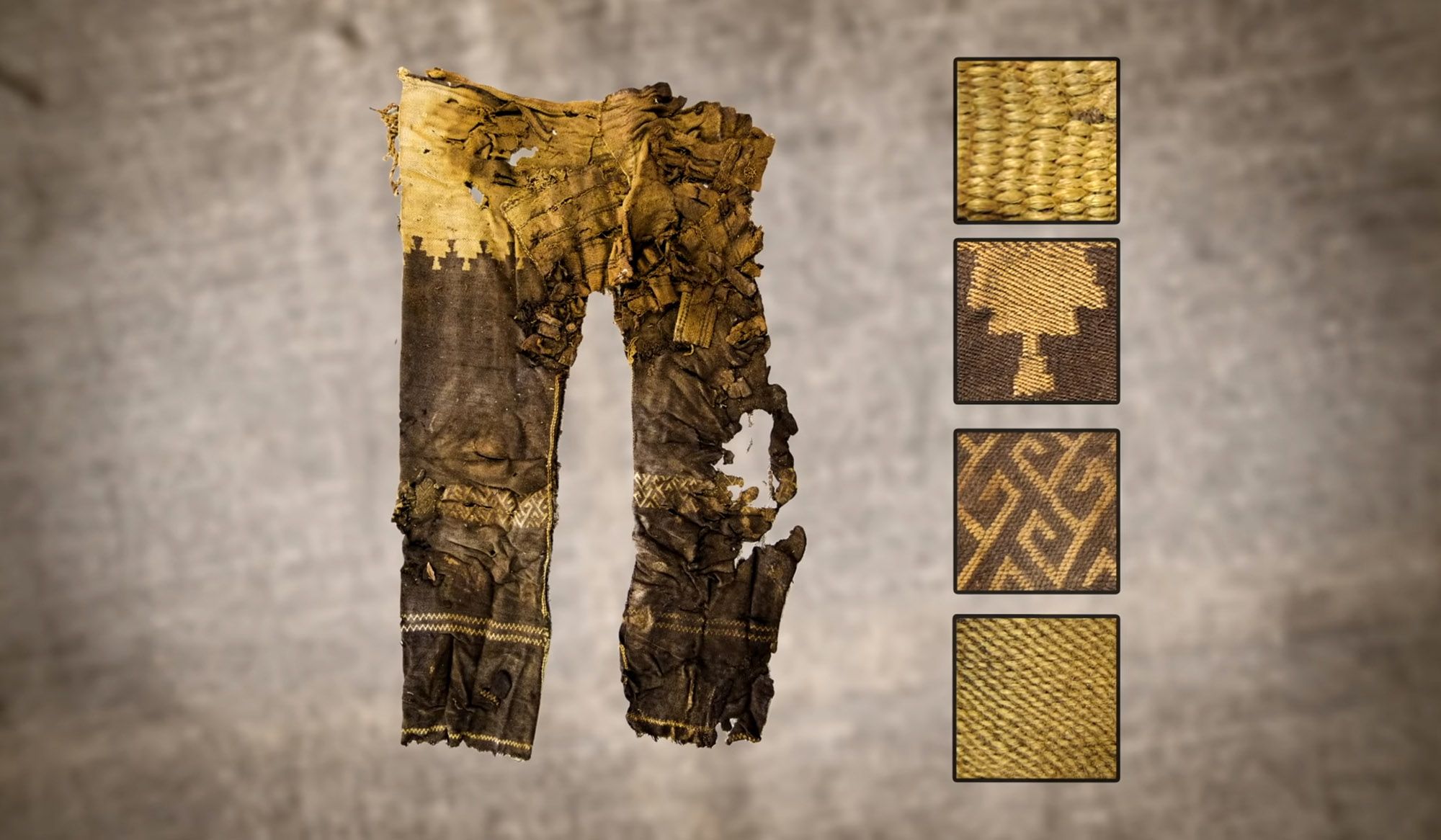A team of researchers working in the ancient Yanghai graveyard in China’s Tarim Basin has uncovered what appears to be the earliest example of trouser wearing. The research team has published a paper in the journal Quaternary International describing the pants and why they were likely developed to assist with riding horses.

The Tarim Basin in western China is host to the famous Yanghai tombs, a large ancient burial ground that dates back thousands of years—thus far over 500 individual gravesites have been excavated. In this latest find, two adult males (believed to be herders and warriors) both approximately 40 years old at the time of death, were wearing trousers. Carbon dating put the age of the material at approximately 3000 years ago, making the find the oldest known instance of trouser wearing.

In the tomb, along with the bodies, were a horse bit made of wood, a whip, a bow and a battle-axe. These artifacts along with the cut of the pants, suggest the trousers were created and worn to allow for easier horse riding over long periods of time. They also suggest that trouser creation had matured to a level that allowed for custom tailoring. Both specimens were created from three pieces of material (sized to fit a particular individual) one for each leg and a crotch piece—both also had an associated belt made of strings. No cutting was required. Each pant leg also had cross stitching that appeared to serve a purely decorative function.

Many historians believe that trousers were invented as a means of riding horses—riding for a long time can cause skin irritation and discomfort. The trousers worn by horse riders likely migrated to other people, the theory goes, who chose to adopt them for unknown reasons. Its likely modifications were made because riding pants are not particularly comfortable for walking or engaging in everyday life. Prior to trousers, people of both genders tended to wear tunics, robes, togas, etc. It is also generally believed that horse riding by humans began approximately 4000 years ago, which suggests trouser wearing began long before the two men in the Yanghai gravesite donned theirs.
AbstractHere, we present the first report on the design and manufacturing process of trousers excavated at Yanghai cemetery (42°48′–42°49′N, 89°39′–89°40′E) near the Turfan oasis, western China. In tombs M21 and M157 fragments of woollen trousers were discovered which have been radiocarbon dated to the time interval between the 13th and the 10th century BC. Their age corresponds to the spread of mobile pastoralism in eastern Central Asia and predates the widely known Scythian finds. Using methods of fashion design, the cut of both trousers was studied in detail.

The trousers were made of three independently woven pieces of fabric, one nearly rectangular for each side spanning the whole length from waistband to hemline at the ankle and one stepped cross-shaped crotch-piece which bridged the gap between the two side-pieces. The tailoring process did not involve cutting the cloth: instead the parts were shaped on the loom, and they were shaped in the correct size to fit a specific person.
The yarns of the three fabrics and threads for final sewing match in color and quality, which implies that the weaver and the tailor was the same person or that both cooperated in a highly coordinated way. The design of the trousers from Yanghai with straight-fitting legs and a wide crotch-piece seems to be a predecessor of modern riding trousers. Together with horse gear and weapons as grave goods in both tombs our results specify former assumptions that the invention of bifurcated lower body garments is related to the new epoch of horseback riding, mounted warfare and greater mobility. Trousers are essential part of the tool kit with which humans improve their physical qualities.





